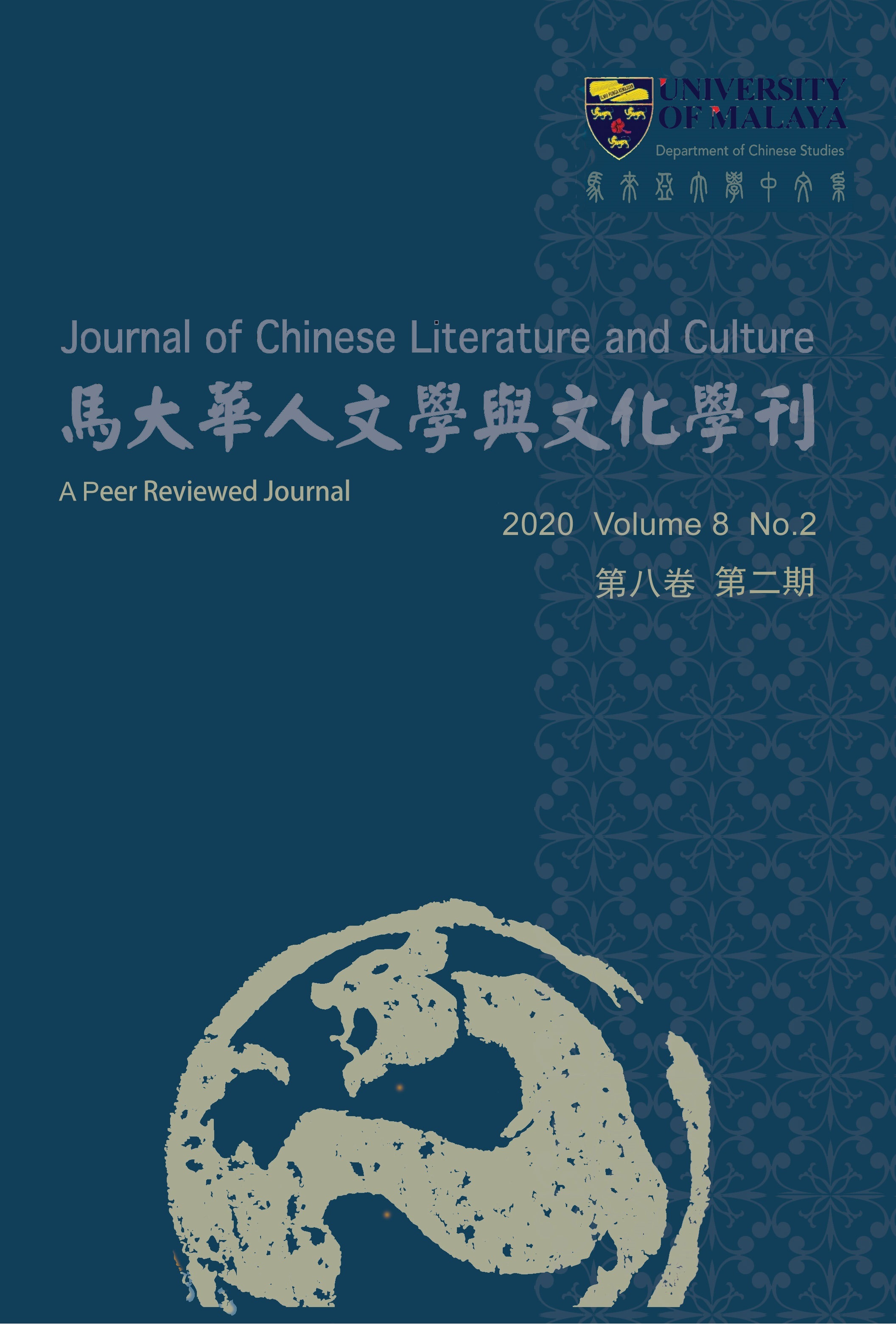Following the Monsoon towards the Tropics: Discussion on Lin Jin Ren's Poetry in Nanyang 循着季风航向热带:论林景仁多重视域下的南洋书写
Main Article Content
Abstract
循着季风航向热带:论林景仁多重视域下的南洋书写
摘要
台湾日治时期古典诗人林景仁(1893-1940),板桥林家二房林尔嘉长子,三岁时便与父亲林尔嘉举家内渡厦门,他身处多国汇聚的租界厦门鼓浪屿,后来婚后因经商关系寓居南洋。林景仁在南洋期间完成了《摩达山漫草》(1915-1917)、《天池草》(1918-1919),而后在台湾完成《东宁草》 (1922-1923 ),一度在 1932 年赴任满洲国外交部欧美科长。目前现阶段的研究成果,大多聚焦在林景仁南洋踪迹的关系研究上,拼凑 林景仁在南洋谜一般的生活及交友轨迹。再者,从林景仁的文本中连结汉诗写作与文化认同。妻子张福英《娘惹回忆录》的出版,补足了林景仁先前比较不被认识的南洋生活面貌。然则,以 文化遗民 解释传统文人到南洋是否是唯一视角?还是应该以他的 经商移民 作为观看方式?当林景仁的南洋移动轨迹立体化后,本文试图在这些史料和研究基础上,本文想再追问的是:林景仁这样一种非典型的传统文人知识分子流动到驳杂的南洋,如何表述南洋殖民地的复杂语境?再者,当他看见同样来南洋经商且定居的 华侨 时,又关注了哪些层面?最后,林景仁又是在这样深具 中国文化痕迹的南洋时,如何回望心中的故乡?透过这些问题的提问,本文欲以流动的视角切入,进而辩证林景仁在重构南洋图象时具有去中心/多重中心的比较视角,亦即自身所述的原乡不只是中原,更是厦门、台湾;接续,提出他南洋诗作中所欲折射出对中国的积弱不振感到不耐,致使他对中国想象产生裂变。
关键词:林景仁, 南洋, 跨境流动. 华侨, 原乡
Following the Monsoon towards the Tropics: Discussion on Lin Jin Ren's Poetry in Nanyang
Abstract
Lin Jin Ren (1893 1940), a classical poet in Taiwan during the Japanese Occupation, and a member of The Lin Ben Yuan Family (板桥林本源家族). During his stay in Nanyang, he completed the writing of classical Chinese poems Voyage (摩达山漫草) and In Lake Toba (天池草). The current research results are mostly focused on the relationship about Lin Jin Ren's traces in Southeast Asia. Also, it links the writing of Chinese poetry and cultural identity from Lin Jin Ren's text. The publication of Memoirs of Nyonya (娘惹回忆录) by his wife, Queeny Chang, complements Lin Jin Ren's previously unknown life in Nanyang. On the basis of these historical materials and research, what I am trying to ask is: How does Lin Jin Ren wrtie Nanyang? When he saw the "overseas Chinese" who also came Nanyang for business and settled down, what levels did he pay attention to? Finally, how does Lin Jin Ren think his hometown? Through the questions, this article intends to approach from a fluid perspective, and then dialectically demonstrate that Lin Jin Ren has a decentralized/multi centered comparative perspective when reconstructing Nanyang images, that is, the hometown he describes is not only the Central Plains, but also Xiamen and Taiwan; continue, suggesting that what he wanted in his Nanyang poems reflected his impatience with China's weakness, which caused his imagination to split.
Keywords: Lin Jin Ren, Nanyang, cross border movement, overseas Chinese, hometown
